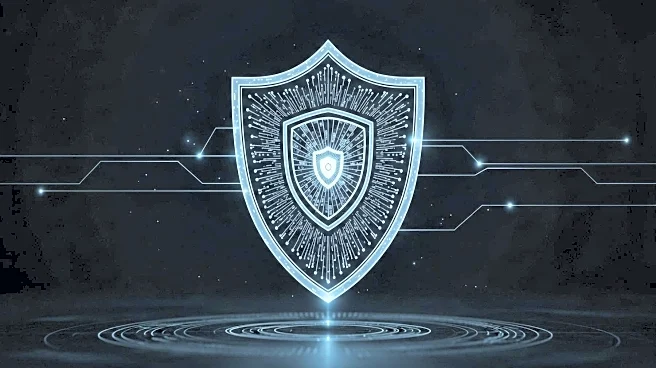What is the story about?
What's Happening?
Libraesva has resolved a vulnerability in its email security gateway that was actively exploited by nation-state hackers. The flaw, identified as CVE-2025-59689 with a CVSS score of 6.1, is a command injection issue allowing the execution of arbitrary commands as a non-privileged user. This vulnerability was exploited through malicious emails containing crafted compressed attachments, due to improper sanitization during the removal of active code from files in certain archive formats. The affected versions are Libraesva ESG 4.5 through 5.5, with patches released for ESG 5.x versions. Libraesva has urged customers using on-premise ESG 4.x versions to update to patched 5.x versions immediately. The company confirmed one incident of abuse by a foreign hostile state entity, emphasizing the need for rapid patch deployment.
Why It's Important?
The exploitation of this vulnerability by a nation-state actor underscores the growing threat of cyber attacks on critical infrastructure and services. Email security gateways are vital for protecting organizations from phishing, business email compromise, and advanced threats. The incident highlights the importance of maintaining up-to-date security systems and the need for continuous monitoring and patching to prevent exploitation. Organizations across various sectors, including small and medium-sized businesses and large enterprises, rely on such security measures to safeguard sensitive information and maintain operational integrity. The breach serves as a reminder of the evolving tactics used by cyber adversaries and the necessity for robust cybersecurity strategies.
What's Next?
Libraesva has implemented patches that not only resolve the vulnerability but also include a self-assessment module to check patch integrity and hunt for residual threats. Organizations using Libraesva ESG are advised to ensure their systems are updated to the latest patched versions to mitigate risks. The cybersecurity community may see increased collaboration and sharing of threat intelligence to better understand and counteract nation-state cyber threats. Additionally, there may be a push for more stringent security protocols and continuous asset visibility to prevent similar incidents in the future.
Beyond the Headlines
The incident raises ethical and legal questions about the responsibilities of companies in safeguarding against nation-state cyber threats. It also highlights the potential for geopolitical tensions to manifest in cyberspace, where state-sponsored actors target foreign entities. The need for international cooperation and legal frameworks to address cyber warfare and protect global digital infrastructure is becoming increasingly apparent.

















